Dong Thap University (DThU) successfully hosted the Workshop on Circular Bioeconomy on April 18–19, 2025, as part of its active engagement in the GreenEdAsia Project. The two-day event brought together experts, researchers, faculty members, and students to exchange knowledge and consult on curriculum innovation, with a focus on integrating bio-circular economy principles into higher education.
The workshop aimed to strengthen institutional capacity and foster academic dialogue in the fields of Agronomy and Land Management, with a shared commitment to sustainable agriculture and green development.
Expert Insights and Practical Models
The workshop featured insightful presentations from prominent experts with extensive experience in both the theoretical and applied aspects of the bio-circular economy in the Vietnamese context.
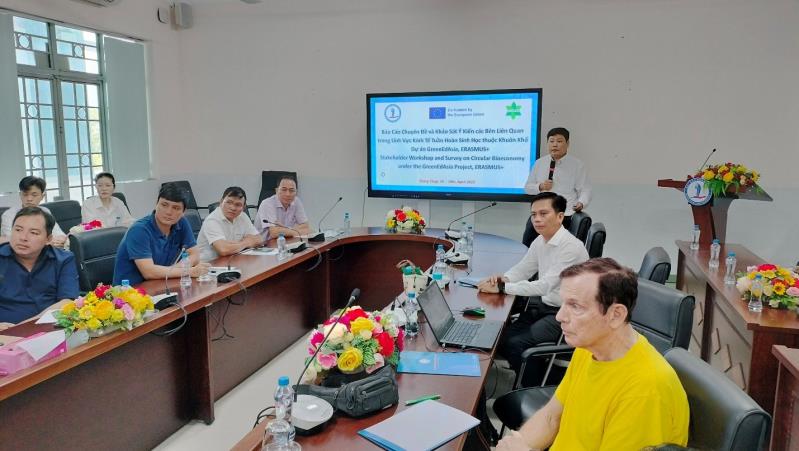
The program opened with a keynote address by Dr. Nguyen Minh Tu, Head of the Agricultural Circular Economy Research Group at the Institute for Circular Economy, Vietnam National University – Ho Chi Minh City. Dr. Tu outlined fundamental principles of circular agriculture, emphasizing the reuse of agricultural by-products and the promotion of integrated farming systems.
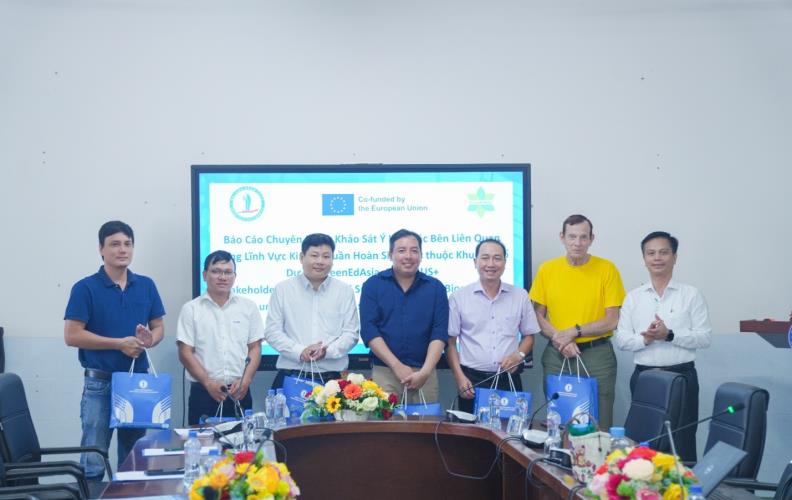
Subsequent sessions highlighted real-world applications and innovation-driven approaches:
- A case study on energy conservation practices at Ech Op Farm Co., Ltd., a leader in organic and ecological agriculture.
- A presentation from Endota Co., Ltd. on green technologies that transform agricultural waste into smokeless biochar.
- A demonstration of a circular economic model implemented by Dinh An Agricultural Seed Cooperative.
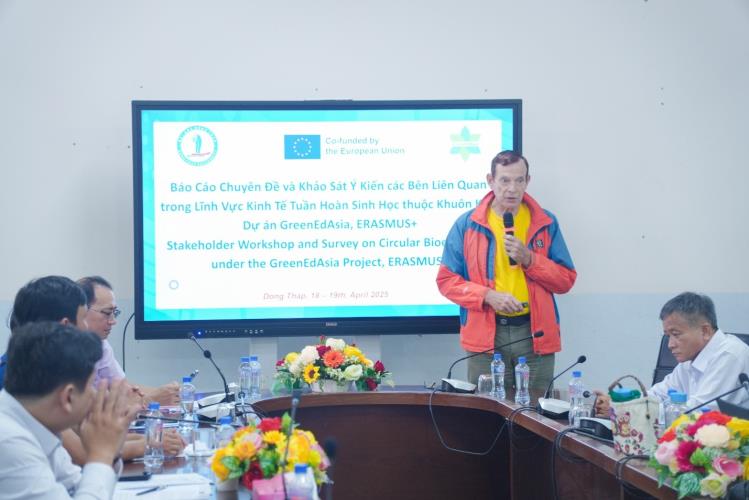
- And a closing presentation by Dr. Paul Olivier, an international expert on waste transformation, who introduced advanced methods for converting waste into high-value resources.
Field Visits and Applied Learning
On April 19, participants engaged in a field study to observe circular bioeconomy practices in real-world settings. The delegation visited Endota Co., Ltd., where they learned about the company’s production of organic animal feed and compost using black soldier fly larvae, as well as the creation of biochar from mango seeds.
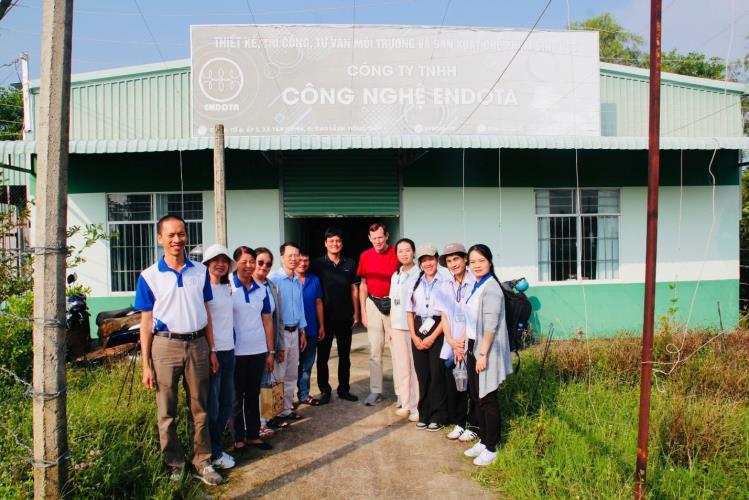
The itinerary continued with a visit to Dinh An Agricultural Seed Cooperative for an interactive session and concluded with an exploration of a household-scale circular farming model at one of the member farms of Ech Op Farm. These site visits offered participants valuable insights into the adaptability, impact, and scalability of circular approaches in both cooperative and smallholder agricultural contexts.
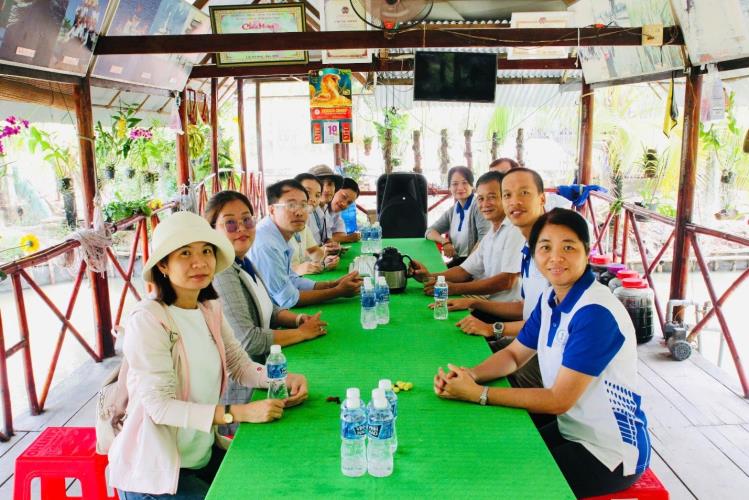
This workshop marks a significant milestone in DThU’s efforts to modernize agricultural education and align with international trends in green innovation and sustainability. The knowledge and recommendations gathered will inform the upcoming revision of the university’s training programs, particularly in Agronomy and Land Management, as part of the broader GreenEdAsia mission.